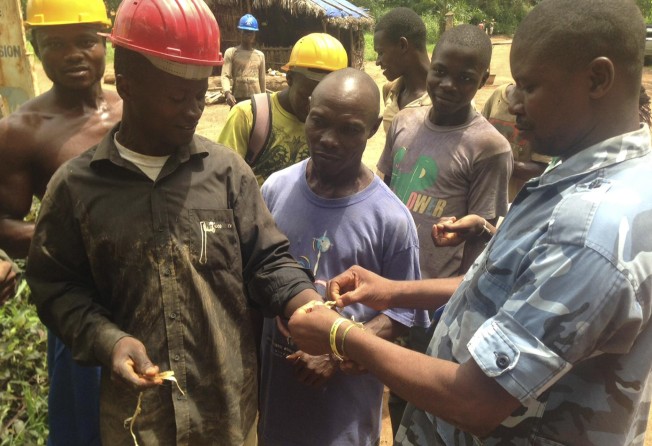Fear and ignorance help spread of killer Ebola virus in west Africa
As killer virus spreads to urban areas in west African nations, local traditions and suspicion of corruption are hindering health officials

When Ebola first struck Pujeh, a village deep in Sierra Leone's forested interior region, residents did what they always do when a mysterious illness brings death: they consulted the traditional healer. But the elderly herbalist soon caught one of the world's most contagious diseases, and then became a source for spreading it as visitors streamed in.
By the time officials had pinpointed Pujeh as a hot spot for the disease months later, dozens had died.
"The people living in these areas said there's no such thing as Ebola," said a district doctor. "They have their traditional beliefs and their traditional cures and they look up to their traditional leaders. Until we can bring the traditional leaders onside, it will be very difficult to convince them that Ebola even exists."
As the death toll from the latest outbreak of the world's deadliest virus climbed to 467 - far exceeding the previous most lethal outbreak which killed 254 people in Congo - officials and health workers are battling a surge of infections propelled by misinformation and doubt about the disease's existence on one side, and mistrust of scandal-hit governments on the other.
Following a World Health Organisation warning that the illness is "out of control" in Guinea, Liberia and Sierra Leone, west African health ministers on Wednesday began a two-day summit in the Ghanaian capital, Accra, to discuss ways to strengthen regional cooperation.
Some government officials have disputed the WHO's statement, saying the increasing death toll is a sign of better surveillance. "We are not saying everything is OK but there are fewer people dying in silence now, which is a good thing," health ministry official Sakouba Keita said from Guinea's capital, Conakry.
The tiny nation has been the hardest hit by the virus, which first appeared there in February before spreading through the tropical forests that sprawl into Liberia and Sierra Leone. More disturbingly, it has also jumped to all three countries' capitals.
"This is different from other cases as it's a cross-border epidemic. Previous outbreaks have been very localised, which makes them easier to isolate. Now it's also affecting urban areas," said Dr Nestor Ndayimirije, Liberia's WHO representative.
Weak public health systems have also undermined attempts to halt the disease. Sierra Leone and Liberia are both recovering from decades of civil wars, while half a century of dictatorship in Guinea ended in 2010.
But its alarmingly wide spread is partly down to customs. "The deaths have been increasing because of traditional burial rites in that region," said Tolbert Nyenswah, Liberia's deputy chief medical officer. The Kissi ethnicity, found in all three countries, traditionally keep their dead at home for several days, and mourners touch the deceased's head frequently before burial.
Ebola has a fatality rate of up to 90 per cent and is transmitted through contact with body fluids of infected people or animals, even after death.
A doctor in Sierra Leone said patients' families often tried to break them out of treatment centres. "Some of them are in denial and [say] it is something they can treat at home, and faith healers are one of the problems for us. When you have patients disappearing like that, you don't know where the virus will appear next."
The disease has also revealed alarming mistrust between citizens and officials in a region with high corruption levels.
Ebola was initially viewed as a government conspiracy to depopulate Sierra Leone's Kailahun district, and fierce resistance to the arrival of health workers culminated in the stoning of a Medecins Sans Frontieres vehicle.
In Liberia, many believe the outbreak is a hoax from government officials seeking to distract from scandals or corruption.
"The government of Liberia has come up with a new strategy to divert the Liberian people's mind," student Alfred Randall said. " The virus is very terrible, but Ebola is not in Liberia."